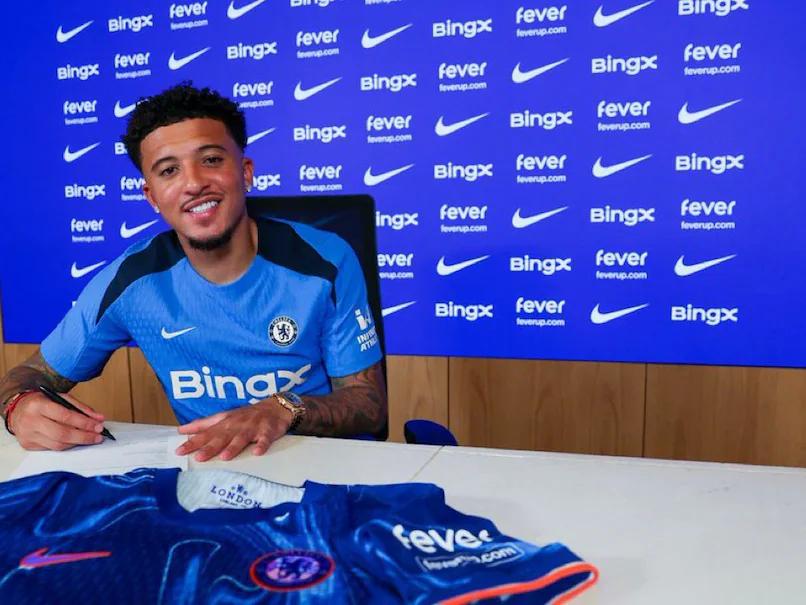Chelsea's Mykhailo Mudryk: The Potential Record-Breaking Ban in Premier League History
Chelsea forward Mykhailo Mudryk is currently facing the potential of receiving the longest ban in Premier League history, following a failed drugs test which led to his provisional suspension by the FA.

Joey Barton currently holds the record for the longest ban in Premier League history, with the FA suspending the former midfielder in April 2017 for 18 months after finding him guilty for placing best on 1,260 matches between March 2006 and May 2013. He later had the ban reduced to 13 months after appealing, though, that still saw him set the record.
When it comes to a drugs ban, Abel Xavier is the holder of that record, receiving an 18-month suspension while a Middlesbrough player in November 2005. UEFA found a positive test for an anabolic steroid following a UEFA Cup match, with the Court of Arbitration for Sport cutting his ban down to a year.
Mykhailo Mudryk facing four-year ban - the longest in Premier League history
Mudryk, though, could be issued a punishment four times as harsh as Xavier's, with the maximum punishment a four-year ban from football.
The Ukrainian insists he has "never knowingly used any banned substances", despite the FA discovering an adverse finding in a routine urine test. Due to that adverse finding, Mudryk has been missed for the last four Chelsea games, as per FA rules dictating that a player is informed of a positive test and provisionally suspended before a decision is taken on a formal charge.
That formal charge relies heavily on the result of the 'B' sample. When players are tested, two samples are collected in separate containers - the 'A' sample is used to conduct the initial test, with the 'B' sample then required to verify the accuracy of results if a positive 'A' sample is returned.
Should that 'B' sample also come back positive, then Mudryk could face a maximum four-year ban from the FA. While the 'B' sample is being tested, Mudryk has the opportunity to provide an explanation for the initial positive result.
Get FourFourTwo NewsletterContact me with news and offers from other Future brandsReceive email from us on behalf of our trusted partners or sponsorsBy submitting your information you agree to the Terms & Conditions and Privacy Policy and are aged 16 or over.If Mudryk does receive the maximum punishment, he'd return to football aged 27 - 28 if the ban is handed out after January 5 - in the 2028/29 season. But while his current contract with Chelsea, which runs until the summer of 2031, will still have a couple of years remaining on it, there's no guarantee the hierarchy at Stamford Bridge would look to keep him.
Indeed, Juventus and Paul Pogba mutually agreed the termination of his contract earlier this season once the length of his drug ban became clear, which would likely happen between Chelsea and Mudryk.
Though Mudryk faces a potential four years out of football, it still wouldn't be the lengthiest punishment issued by the FA in its history. That's because former Torquay United goalkeeper Olafur Gottskalksson disappeared after being selected to give a sample in 2005, knowing his cocaine addiction would show up in the results.
A few months later the FA announced that Gottskalksson, who had fled to Amsterdam and didn't return, had been banned from football indefinitely, with that lifetime ban trumping the 30 years Enoch got for match fixing in 1915.
RELATED STORIES






LATEST NEWS







